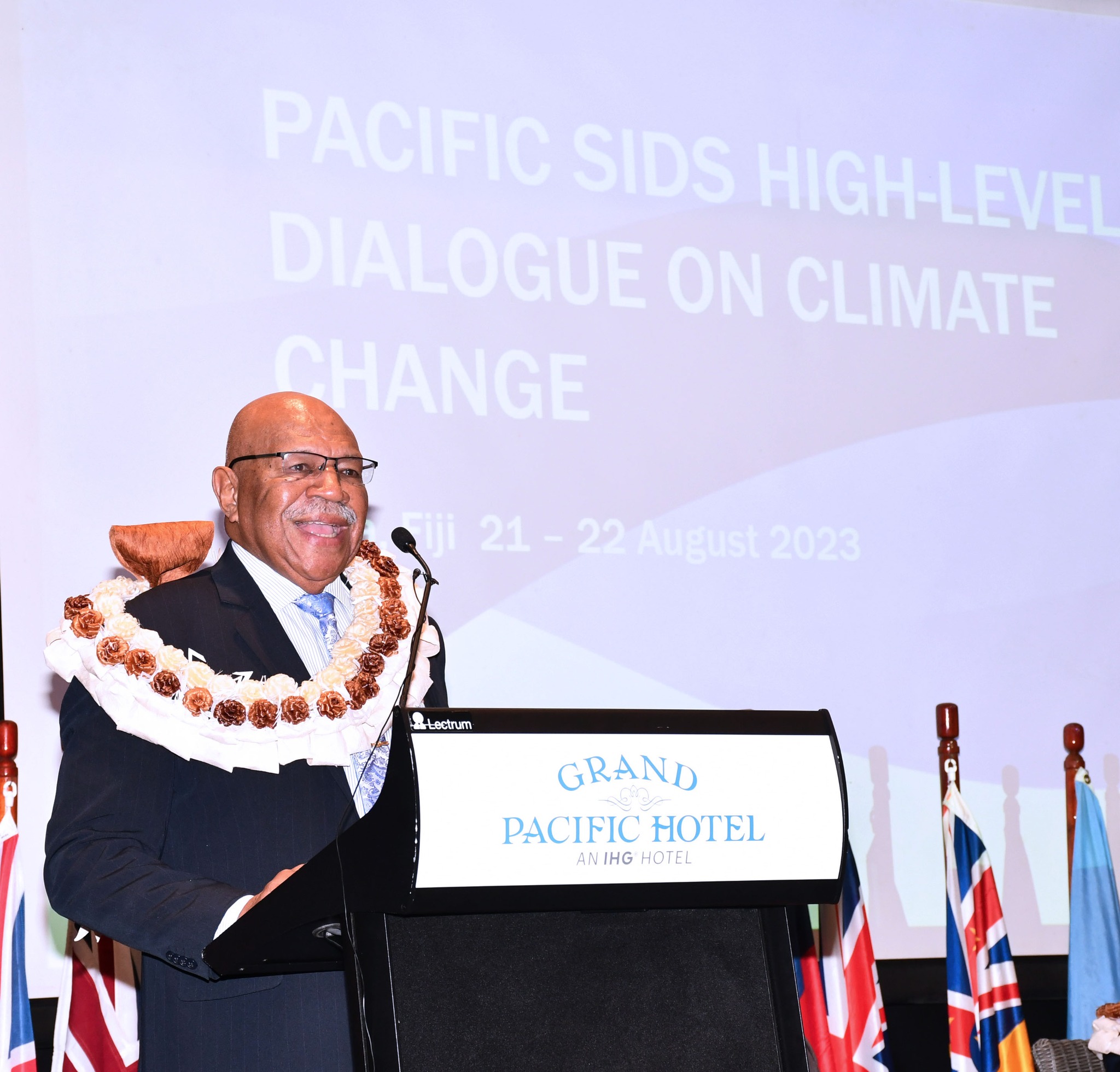Fiji’s Prime Minister Sitiveni Rabuka has defended the Japanese Government’s decision to discharge nuclear waste material into the Pacific Ocean.
In a statement, Rabuka said there are constant references to the plans for the wastewater to be dumped in the Pacific.
“That creates the wrong impression. It is to be discharged – into Japan’s own backyard, 7306 kms from Fiji,” said PM Rabuka.
He said one of his critics at the weekend appeared to be somehow connecting the wastewater discharge with the cataclysmic power of the nuclear bombs dropped in the Pacific as part of weapons testing.
“That, to me, is fear mongering. It’s impossible to compare those nuclear tests, with the careful discharge of treated wastewater from Fukushima over a period of approximately 30 years. The material I have read says a commercial type power reactor simply cannot, under any circumstanced, explode like a nuclear bomb. The fuel is not enriched beyond about 5 percent; a much higher enrichment is needed for explosives.
“I confirmed my support for a report by the International Atomic Energy Agency (IAEA) that the discharge of the wastewater met international safety standards. I based my views on the science applied by the independent IAEA in its investigations and report. The IAEA is part of the United Nations system. The safety standards mentioned by the IAEA are reviewed annually by the UN General Assembly, based on estimates by the UN Scientific Committee on Effects of Atomic Radiation (UNSCEAR). The standards also include recommendations from independent, non-government group the International Commission on Radiological Protection (ICRP).
“My decision to endorse the IAEA findings was taken by me as a Prime Minister’s prerogative. Those who oppose the position I’ve taken are obviously entitled to their viewpoints.
“However I urge them to consider the science involved.
“I’m going to share with you now, for the record, a few expert responses to the Fukushima plans. There are many more available.
“The data I have read emphasises that nuclear power stations do not produce greenhouse gases like carbon dioxide and methane,” said PM Rabuka.
He said the Society for Radiological Protection has 2000+ members and is the principal independent professional body in its area of expertise. Outside the USA, it’s the largest organisation of its kind in the world. It publishes the internationally respected Journal of Radiological Protection.
“It asserts that there should be no concern that the wastewater discharge operations could in any way affect human health or the environment.
“The IAEA verdict, it says, is highly justifiable,” said PM Rabuka.
Professor Jim Smith, of the School of Environment, Geography and Geosciences at the University of Portsmouth in the UK, believes that sewage discharge and ocean plastic pollution has greater ecological impacts than radiation.
Professor Robin Grimes, Steele Chair of Energy Materials, Imperial College London, says the concentration of tritium, the remaining radionuclide in the water to be discharged, is very low and well below levels of any environmental concern.
Professor Gerry Thomas, former Professor of Molecular Pathology, Imperial College London, says the clean up of the water has been closely monitored by relevant authorities inside and outside of Japan.
According to Professor Thomas the IAEA report clearly stated that the release of the stored contaminated water is consistent with the relevant, very conservative, international standards…. Finally the water released would be a drop in the ocean…. in terms of volume and radioactivity.
There was no evidence these extremely low levels of radioisotopes have a detrimental health effect.
Professor Thomas added: “Other substances that we willingly ingest, such as alcohol, fatty and sugary foods, have a relatively large detrimental effect on our health, but are subject to much less stringent regulation and produce much less concern to the population.”
SOURCE: FIJI GOVT/PACNEWS














